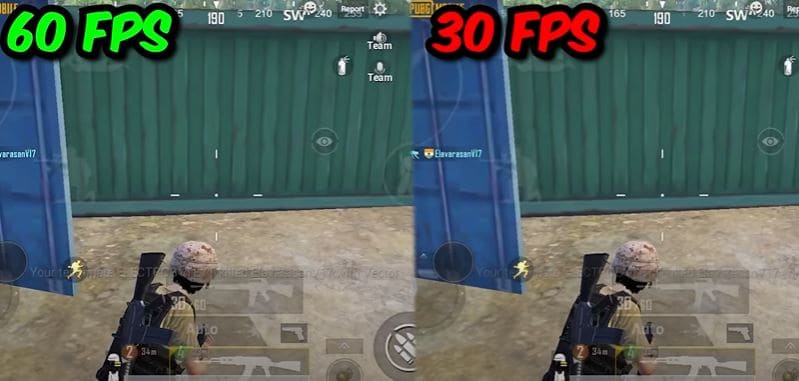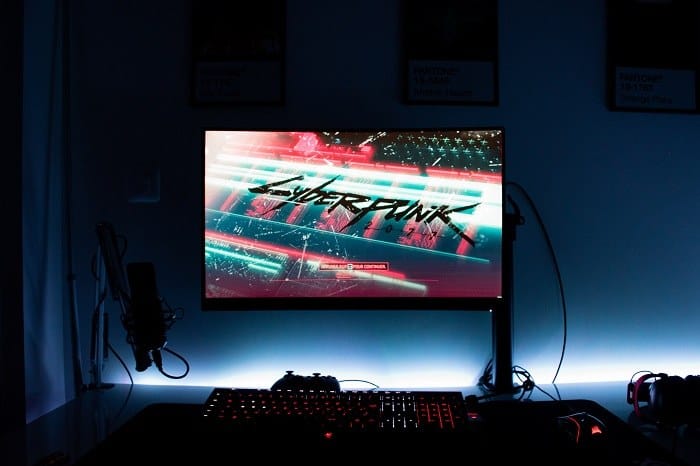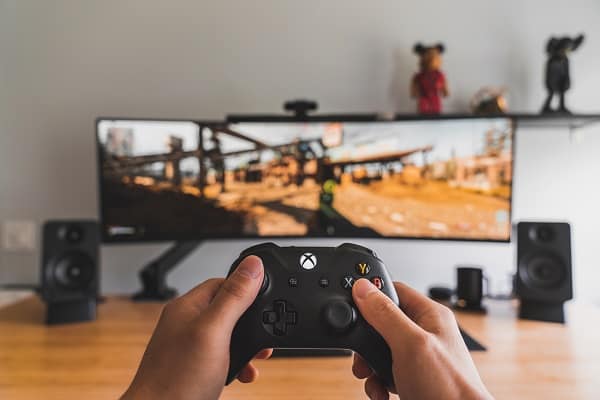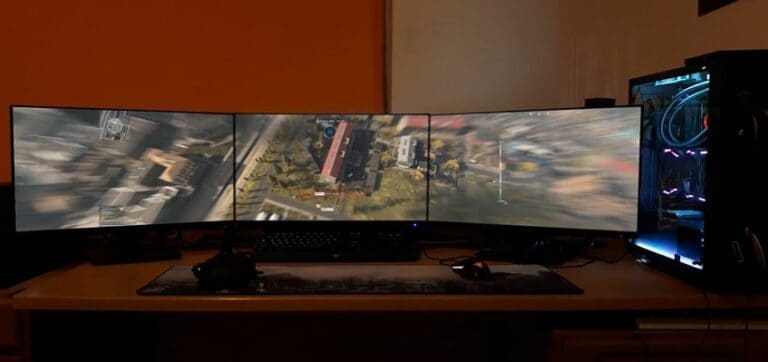As an avid gamer, it comes as no shock that I dig deep into computers to ensure they have just the right specifications for the games I play. A powerful CPU, a graphics card, the finest sound system, a keyboard, and a monitor.
The monitor is undoubtedly one of a gaming rig’s strongest and most important components. However, it often clashes with another important aspect – the frames per second, commonly known as FPS.
When I was a beginner in this line, I faced a lot of confusion as to whether or not these two factors were related. I often asked, “Does Monitor Affect FPS in any way?” With time and experience, I have come to the conclusion that the answer is both yes, and no.
While the monitor is not supposed to affect the FPS, in many cases, it does. These are the cases we will discuss below, where I will try to break down the knowledge I have gathered over the years. So let us break down all the details now, shall we?
What is FPS?
First things first, for everyone who has heard this term a thousand times but is still confused, FPS stands for Frames Per Second but is also commonly referred to as the Frame Rate. As per the name, it determines the number of frames the monitor shows in one second.
So, what is a “Frame?” Put simply: It is one single image or image frame. Multiple frames are then put together as a slideshow, creating a video, motion, or animation. The number of frames that are put together in one second is the FPS of that computer.
This obviously means that a higher FPS means a better slideshow or video, which we eventually see on screen. However, although the result of the FPS is seen on screen, the work here is done collectively by the CPU and GPU. The PC storage can also affect FPS.
These two components work together to create these very frames or images.
This is done by splitting the images into pixels at your computer’s set resolution. Those are then displayed in a series to form the final videos seen on screen. This also means that one would require a powerful CPU and GPU to achieve a high FPS.
Why Is FPS Important in Gaming?

Even without fully understanding the concept of FPS, you have probably noticed bad graphics when they appear on the screen and experienced utter disappointment, especially if it happened during games.
Now, we know how the FPS works. It makes things a bit clearer for us. We understand the importance of a high FPS count, but what makes this such an essential part of gaming?
High FPS Count Contributes to Animation Smoothness
As the FPS increases, the animation on the screen will be smoother. As we have just seen, high FPS means more frames, which helps to create a more polished animation without any hiccups.
Why is this particularly important in gaming?
It is not. It is important for all kinds of animations and visuals we might see on screen. But it is stressed for gaming because without a smooth screen, it is difficult to play games, especially ones that involve a lot of action or shooting.
Not to mention, for professional players, not having that nice and smooth animation can also mean a large loss in points, getting kicked out of teams, or even getting banned.
With Low FPS One Can Notice Distracting Shadow Effects
With a low FPS, you will notice that the animations have a sort of blurred background that is almost shadowlike. In addition, the low animation speed makes the entire animation appear somewhat bumpy on screen.
On the other hand, with a high FPS count, you won’t eliminate this shadow per se, but it will be faint enough to not be noticeable. Not just that, because of the higher animation speed, you most likely will not even catch it. I surely have not.
High FPS Count Provides Better Synchronization
At low Frame rates, one of the worst things I have experienced is bad synchronization which often ends in lost games. If you are into e-sports, that is bad news for you.
In simple words, this is when there is low synchronization between the frames on screen, and you see almost a tear where the images do not align or are not in sync.
Of course, with a high FPS, this problem is easily avoidable. But does it mean that you will not face any synchronization problems? Once again, the answer is no. There will be some, but it will be low enough to not be noticeable or to affect your games.
High FPS Affects Animation Speed
Explained in the simplest words, animation speed, or to use the technical word – system latency, is how soon you can see animations on screen.
With a high FPS, you will see the animations sooner on screen, allowing you to take action sooner. This is especially important for shooting games where it is easy to miss the target if the animation lags.
Experience and Enjoyment
We have focused a lot on the technical bits, winning points, leveling up, and much more, and how they are all related to a good FPS. But that is really not all. Gaming is not only about leveling up but also about enjoying the process.
Would you really enjoy shooting enemies on a lagging screen that glitches? I know I would not. But, regardless of the results, having a high FPS is at the core of fun gaming and an amazing experience.
Limitations
We have spoken a lot about the FPS and how it changes how you see animations on screen. But, if you recall, in the very beginning, I had mentioned that FPS is and is not related to the monitor.
While the frame rate is not supposed to be affected by the monitor, a low-quality monitor or a monitor with a low display frequency can affect the FPS.
Professional gaming means you need to build your experience and level up slowly. For that, you need seamless gameplay from a seamless screen.
All the above-mentioned factors will become roadblocks for you without the right FPS. Of course, the possible results are not getting teams to play with or getting banned from the games.
How Does a Monitor Affect FPS?

When I began gaming years ago, it took me a while to get this through my head – how does a monitor affect FPS? But it is easier to understand with time and many games later. So, hopefully, I can pass the message across in an easy way to new beginners.
To understand how a monitor affects FPS, we must dig deep into how the monitor works. First, with the monitor, we have the display frequency in Hertz.
This is also known as the monitor refresh rate, which means the number of times an image is drawn in a second. Naturally, this means a higher display frequency equals a better monitor quality.
Let us look at some examples. Although they are not equally comparable, this is a pretty simple way to look at it for the sake of explanation.
So, if I buy a computer with a monitor refresh rate of 60Hz, one of the lowest, I will receive 60 images per second. But, simultaneously, if I have a refresh rate of 60 FPS, I will get a decent display.
The problem occurs when these two refresh rates are vastly different. To achieve a better gaming experience, I can upgrade my GPU to receive a refresh rate of 144 FPS.
Technically, I should see a smoother and better-animated screen, but I will not. Because I have not upgraded my monitor, which is still functioning at 60 Hz.
Due to this gap, the monitor ends up affecting the FPS. Therefore, when the refresh rate is upgraded, the monitor has to be upgraded to a better display resolution to work with the high FPS.
Otherwise, it will still be processing images at a low rate, deeming your high-end graphics card useless.
Monitor Size Matters
We have spoken a lot about the quality and display frequency of the monitor, but what about the size?
Well, good news, the size does not matter. As long as we can match the refresh rates, the visuals and animations should all be good and smooth.
Multiple Monitors Can Affect FPS Through Display Frequency
I love using two monitors, especially because of the massive space I can get. Not to mention having a hundred tabs open is much easier this way. However, if you are like me and enjoy more than a single monitor, the key point to remember is the display frequency.
All the monitors should have the same display frequency to keep up with the refresh rates, ensuring smooth animations and the best gaming.
What Type of Monitors Are Good for Optimal FPS When Gaming?

By now, we have a pretty solid idea about FPS, what it does, why it is important, and whether a monitor affects fps. The only thing left is to discuss the monitors that allow us to have the best FPS, so we can go ahead and buy the ones we need.
High-Resolution Monitors Work
If we want optimal Frames per Second, we need optimal resolution. These go hand in hand; without a high resolution, a high FPS will not do you justice.
You will have to spend a little extra and extend the budget. But if you are an avid gamer like I am, then you will know how important the resolution is and how this is something worth investing in.
Get a Monitor with Variable Refresh Rate
A little refresher – the refresh rate is the number of times the screen refreshes per second and is measured in hertz. When looking for a gaming monitor compatible with a high FPS, the minimum refresh rate to settle for is 60Hz. Of course, the higher it goes, the better the overall experience.
Make Sure Your Monitor Has a Good Response Time
Unlike all the other factors we discussed in this article, the rule of thumb changes regarding response time or response rate. A lower response rate is considered better.
So, what is this response time? Only the number of times a screen or monitor blinks or responds per second. This is precisely why a lower number is better – the screen blinks less.
The number to watch out for here is the lowest possible, and a 1ms refresh rate is an optimal number in this case.
Final Words
What do you think? Does Monitor Affect FPS? This detailed article shouldn’t be a problem figuring it out. To sum it all up, although there are myths and confusion regarding this relationship, the truth is, at the end of the day, a monitor does, in fact, affect FPS.
The effect might not be direct, as the GPU is mainly responsible for the FPS. While the monitor functions separately, a lower monitor resolution can tread all over it, bringing the quality down.
The one clear point here is that if you are into gaming and want a high FPS PC, you need a compatible monitor with a high display resolution. This is the only way to get the most out of your GPU, ensuring your money gets its worth through fantastic and speedy gaming.

Hello Good People! This is Pavel and Welcome to PC Delight!
I’m an Electronics Engineer by profession with a passion for Gaming & PC builds. When I came up with the idea for PC Delight, it was my goal to share & offer the very best PC building ideas to tech-loving people like myself.
Since my school days, I’ve been just addicted to gaming & PCs. That leads me to experiment with various ways around the very niche, resulting in great productivity. And I’m here to share those practical experiences. So that next time you start some experiment with your PC builds or struggle to cope with a certain game, I’m here with the solutions. With these philosophies, I started my journey in 2017 and just kept going.
